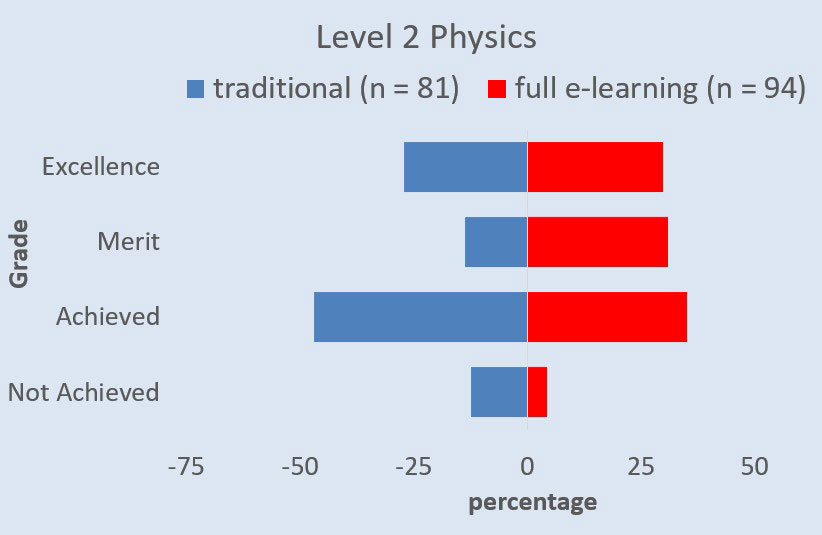
e-Learning in Level 1-3 Physics Investigations
Using e-learning significantly enhances student outcomes during physics investigations.
Previously judged beyond many students, the e-learning environment places physics investigations within the reach of the majority by:
- improving engagement and organisation;
- modelling and isolating analytical skills;
- improving the quality and rate of analysis and thus increasing the time available for critical thinking;
Students produce better physics investigations when e-learning moves beyond data analysis and word-processing and includes mechanisms that facilitate student-teacher dialogue.
These gains are evident until the data analysis apps challenge the students as much as the physics.
